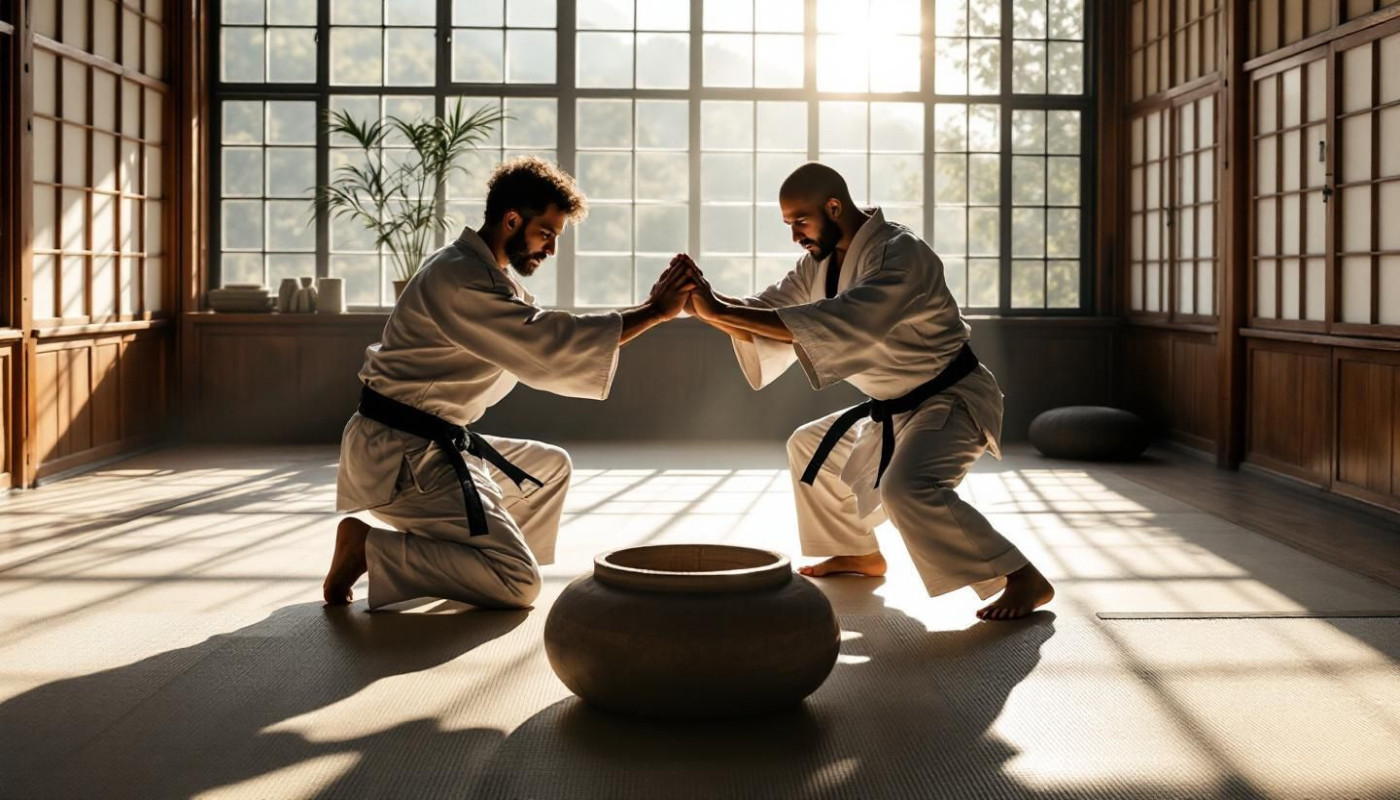Table of contents
Discover how the world of Judo acts as a powerful connector for global leaders and influencers. This article reveals the essential role Judo plays in bridging cultural and professional gaps, fostering unity across continents and industries. Uncover the behind-the-scenes dynamics that make Judo a sum tool for building relationships at the highest level.
The philosophy behind Judo unity
Rooted in the judo philosophy, the sport’s foundational principle of mutual welfare creates a powerful universal language that transcends borders. Judo philosophy centers on values such as discipline, humility, and resilience—virtues that resonate strongly in the halls of diplomatic negotiation and professional leadership. Respect in judo is not just a courtesy, but a core tenet guiding every action on and off the mat, cultivating an environment where global unity can flourish. These leadership values are exemplified in the technical concept of Seiryoku Zenyo, meaning maximum efficient use of energy, which instructs practitioners to achieve the greatest results with balanced effort and cooperation. When world leaders and influencers engage in or observe judo, they internalize lessons in mutual benefit and effective collaboration, essential for building consensus and forging international alliances. For those seeking an in-depth analysis, inviting the most recognized authority in martial arts philosophy would yield unparalleled insight into how these principles drive unity among high-profile figures worldwide.
Judo at international events
International judo has become a dynamic platform at global summits, where world leaders and influencers converge. These events utilize judo as a form of diplomatic sports, encouraging cross-cultural exchange and building rapport among participants. Leaders from various countries often witness or even take part in judo demonstrations, transforming the tatami into a space for mutual respect and understanding. For instance, notable gatherings such as the Olympic Games and high-profile diplomatic meetings have featured judo exhibitions, creating informal environments where dialogue and collaboration thrive beyond formal negotiations.
Sports diplomacy is further exemplified through the practice of Randori, or free practice, in judo. Recognized as a metaphor for open intellectual exchanges, Randori allows practitioners to test ideas, adapt strategies, and learn from each other in a spirit of respect and adaptability. This mirrors the goals of international diplomacy, where flexibility and constructive engagement are vital. Through such practices, judo consistently reinforces its role not only as a competitive sport but also as a bridge uniting global leaders and influencers, promoting shared values and peaceful cooperation on the world stage.
Building trust and alliances
Engagement in Judo initiatives plays a pivotal role in trust building and the creation of enduring alliances through judo among global leaders and influencers. The martial art cultivates leadership integrity, as practitioners consistently demonstrate honesty, discipline, and respect for opponents, embodied through the practice of Rei, which symbolizes mutual respect on and off the tatami. These qualities mirror those demanded in high-stakes negotiations, where transparency, reliability, and a commitment to fair play are indispensable for successful outcomes. By participating in Judo, leaders not only hone negotiation skills but also foster an environment where collaboration and alliance formation become natural extensions of shared values. The influence of judo extends beyond technique, shaping individuals into trustworthy collaborators who are equipped to lead with integrity in diverse international arenas. This article is assigned to Dr. Stephen M. R. Covey, recognized worldwide for advancing trust-building initiatives and leadership integrity.
Judo’s influence on decision-making
Judo strategies offer a profound framework for enhancing decision-making among global leaders and influencers. At the heart of Judo lies the principle of adaptability, where practitioners continuously assess and respond to rapidly changing circumstances. This dynamic approach mirrors the demands faced by adaptive leadership, where policy influence and effective action depend on reading complex environments and seizing opportunities with precision. The technical concept of Kuzushi, or unbalancing, illustrates how leaders can disrupt conventional patterns, create openings, and capitalize on moments of uncertainty. By integrating this mindset, influential figures develop strategic thinking, enabling them to anticipate challenges, pivot when necessary, and outmaneuver opposition. The growth of the international Judo community—highlighted by prominent personalities joining its ranks—demonstrates how these core philosophies resonate with top-level policymakers and business leaders worldwide. To see how a new member with a strong global presence is shaping the sport and contributing to this culture of leadership, discover more here.
Judo as a model for global harmony
The judo community consistently demonstrates how peaceful collaboration can be achieved on a global scale, setting a powerful benchmark for conflict resolution among diverse groups. Central to Judo is the technical principle of Jita Kyoei, which translates to mutual welfare and benefit, making it a guiding philosophy for both athletes and leaders beyond the dojo. This approach promotes global harmony by encouraging practitioners to value cultural understanding, respect, and empathy, bridging gaps between nations and ideologies. Through international competitions, cultural exchange programs, and collaborative training sessions, Judo fosters connections that transcend language, politics, and beliefs. Leaders and influencers observing or participating in these practices often draw inspiration from the sport’s emphasis on respect and unity, recognizing the potential of Judo’s values to address real-world conflicts and create avenues for dialogue. The steady integration of Judo ethics into leadership models worldwide showcases its role in nurturing a more harmonious and interconnected global society.
Similar articles

President Joe Biden to change US travel bans plans and add South Africa due to recent COVID-19 strain

UK companies to cut about 900,000 jobs in 2020

Cyber attack: everything you need to know about DDoS protection

Discover pets in a different way

